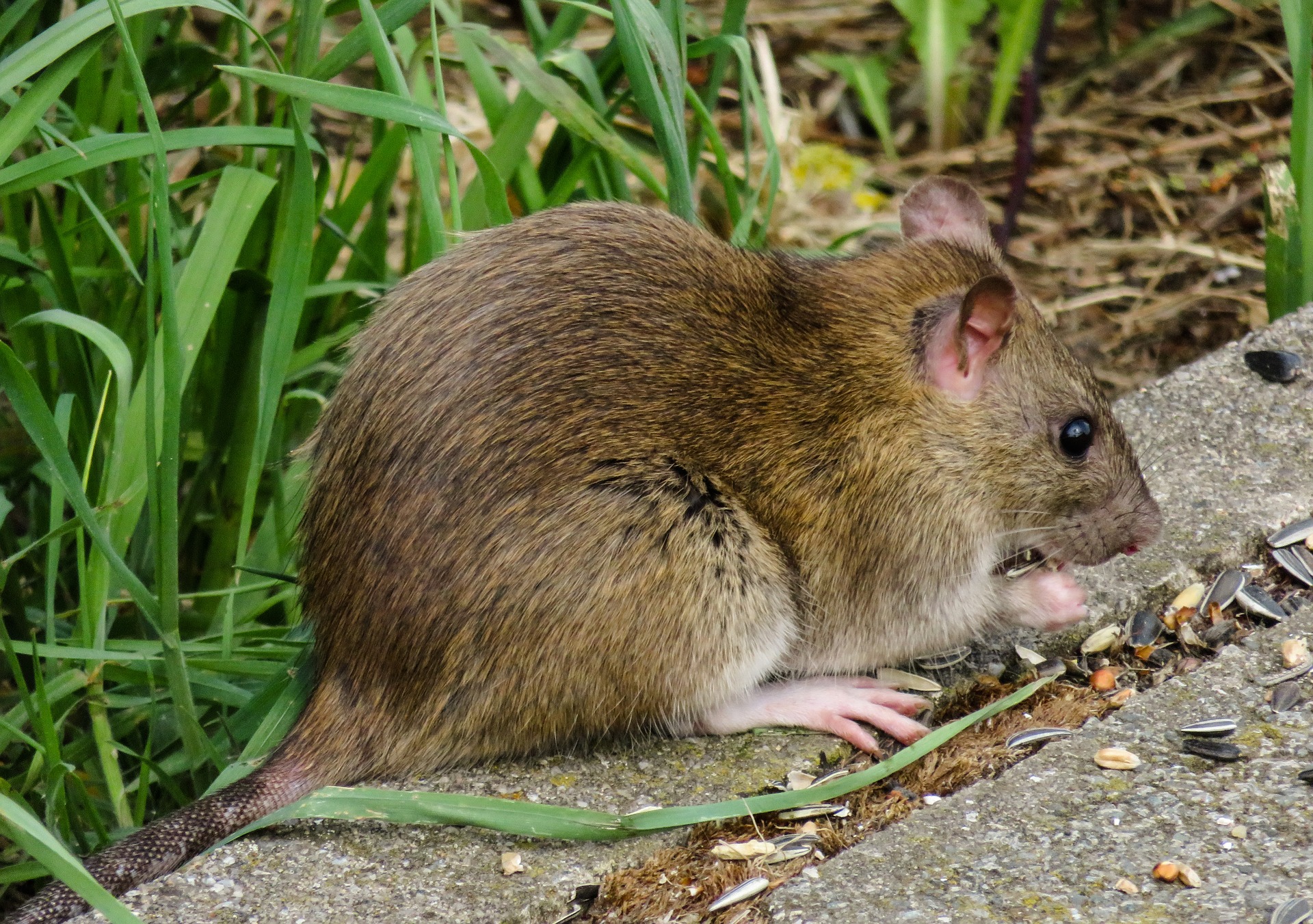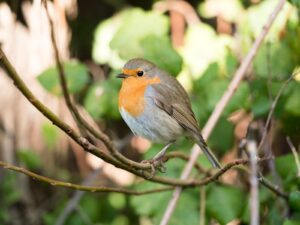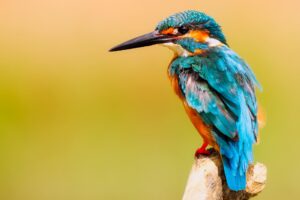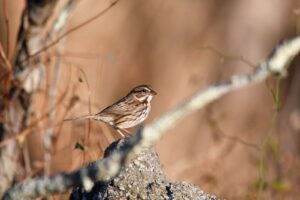If there’s one thing that puts people off hanging a bird feeder in their garden, it’s rats. With an estimated 100 million rats currently living in the UK, it’s highly likely there will be a nest somewhere near where you live, and if your garden seems like a great place to grab an easy snack, rats will be all over it in a heartbeat.
Unfortunately, if your goal is to attract wildlife to your garden, you don’t really have much choice about which animals turn up. And, if you provide a food source, a water source, and shelter, you could well find your garden becoming a breeding (and dining) ground for all of the local wildlife – rats included.
The questions, how can you stop attracting rats to your bird feeder? Are there any special tips or tricks you can use to stop rodents from devouring your birdseed and causing damage to your bird feeders?
Well, in today’s article, we’re going to answer these questions and furnish you with ten expert tips to reduce the chances of rats making your garden their second home.
Eight Ways To Stop Attracting Rats To Your Bird Feeder
Tip #1 – Ground Cleanliness is Imperative
Although it’s an obvious statement to make, spilt seeds underneath your bird feeder are the main culprit for attracting rats. While birds will eat a wide array of seeds, nuts, and the like, they can – at times – be fussy eaters; I’m sure you’ve witnessed birds digging through bird feed and throwing seeds aside to get to the tastier morsels. Either that or they’ll devour everything in sight and make one hell of a mess when doing so!
Regardless of how the mess is caused, it will undoubtedly be an irresistible feast for rodents; therefore, keeping the area below and around your bird feeder is an absolute must if you want to keep rats away. Sweeping this up is the most obvious way to do this, but there are a couple of other ways that you may want to consider:
Zero-waste seed mixes: No waste seed mixes typically combine seeds without shells in addition to pieces of nuts and fruit, resulting in more of the mix being eaten and less (or perhaps none) being discarded onto the ground. The little that does fall on the ground is often gobbled up by other birds.
Catching trays: Some bird feeders may come with a seed catching tray or be available as added extra. As the name suggests, they sit under your bird feeder and catch any seeds that fall off. Simple but effective!
Tip #2 – Feeder Selection is Vital
Choosing the right bird feeder is the best way to stop attracting rats to your garden. Unfortunately, some people use cheap bird feeders or even throw birdseed on the ground – two things that are likely to increase the chance of rats making there way over for a free meal. Tube and hopper style feeders make it much harder for rats to access the birdseed/food, and the more difficult it is for them, the more likely they’ll give up and move onto pastures new. Feeders described as ‘squirrel proof’ are often the best choice for deterring rats as they’re incredibly difficult to chew through.
Tip #3 – Find Ways To Protect Your Feeder From Above and Below
If you’ve seen a rat in action, you’ll know just how proficient they are at climbing – and jumping if needs be! Poles, trees, branches, outdoors tables all pose absolutely no problem for rodents; therefore, if you think that hanging your feeder from a tree will deter rats, think again. It’s best to position your feeder away from anything that overhangs the feeder pole, e.g. a tree, a shed, a fence panel etc.
If you have no other option but to hang your bird feeder from a tree, it’s a wise idea to place a baffle above the feeder. This, in combination with a slim feeder, will make it much harder for rats to get to the feeder and get a sufficient foothold on it. However, it’s important to remember that this setup won’t work if they’re able to jump under the feeder down. Placement is crucial.
As we’ve already mentioned, rats are rather adept at jumping; therefore, it’s crucial to protect your bird feeder from below as well as above. Opting for a metal pole is always a wise idea as metal is far more slippy than wood, meaning the rats won’t be able to climb up it. Furthermore, a cone or torpedo baffle below is also a good idea and will help to keep rats and other chancers like squirrels at bay.
Tip #4 – Try Foods That Won’t Interest Rats
Despite rats’ voracious appetite, there are some foods that they won’t touch. From experience, I have found that rats aren’t too fond of thistle seeds, so putting this in your feeder may keep them away. However, some birds aren’t keen on it either, so that you may put them off too. If you want to give thistle seed a try, it’s best to opt for a thistle seed-specific feeder as they’re explicitly constructed for thistle seeds. Always go for a metal feeder over a fabric sock design as these are far, far more durable.
Additionally, rats also don’t seem to take a liking to anything spicy as, like humans, they are sensitive to hot foods such as peppers. Birds are completely unaffected by hot spices and foods, so adding spices to your birdseed mix won’t adversely affect the birds in any way, shape, or form.
Tip #5 – How Well Is Your Bird Seed Supply Protected?
To keep rats away from your birdseed store, you must do one of two things – keep it in containers that rats can’t chew through, i.e. glass or metal, or keep it indoors where they can’t get to it, full stop. Unfortunately, some people leave sacks or plastic tubs of bird feed in their shed, making for easy pickings. It won’t take long for a few rats to chew through the thin layer of wood that is your shed wall, and the even less time to gnaw their way through a plastic tub or bag.
Tip #6 – Remove Ground Cover
Despite their often aggressive nature, rats are very cautious creatures and will rarely be seen in the open as they’re far more vulnerable to predators. You can take advantage of this by ensuring there’s no ground cover anywhere near your bird feeder(s). To do this, always keep your grass as short as you can (or replace it with mulch or stones); place your feeder at least 25ft from any form of shelter, tree, platform, or anything else that gives easy access, and trim back low tree branches or any shrubs that might provide cover or access to the feeder.
Tip #7 – The Power of Peppermint
According to some, rats aren’t too keen on the smell or taste of peppermint, so spraying peppermint oil around your bird feeder(s) and garden might keep them at bay. At present, we’re unsure just how successful using peppermint is, but lots of those in the birders community are confident it works, so why not give it a try?!
Tip #8 – Remove Water Sources
Like all other animals, a rat’s existence is geared towards survival; therefore, by making their lives a little more difficult may make them think twice about helping themselves to bird feed in your garden.
Rats will typically frequent areas where both food and water are in great supply. If your garden has a bird feeder and some form of water source, e.g. a pond, a birdbath, leaky taps, or merely something that holds water, the chances of attracting rats increases. Although it is difficult to altogether remove water sources from your garden, by removing as many as you can, you’ll make it that little bit more difficult for a rat to find what they need, which may make them try elsewhere.
Tip #9 – Stop Feeding The Birds (for a few weeks at least)
Although this is definitely a prime example of ‘stating the obvious’, the easiest way to stop rats from eating from your bird feeder is to remove it and any birdseed from your garden. This certainly goes against everything we, as bird (feed) enthusiasts, want to do – i.e. see and feed birds, but it is an option (even if it’s not a very good one!).
Tip #10 – Last Resort: Traps
If you’ve tried everything under the sun but still don’t seem to be having any success, resorting to traps might be your only option. While some may not agree with the use of traps, in some circumstances, it’s the only way to get rid of rats; therefore, if you’re at your wit’s end, it’s certainly something to consider. If you do decide traps are the way forward, we highly recommend speaking to a professional as they will be best placed to assist you in trapping rats safely and humanely.
If you don’t want to hire a professional, it’s essential to choose a trap that will allow for a rapid and humane death. The last thing you want is for the rat to suffer, so buying a high-quality and efficient trap is vitally important.
These eight tips should stand you in good stead for removing the rats from your garden or at least prevent them from attacking your bird feed whenever they so desire.
Things NOT To Do If Rats Are Eating From Your Bird Feeder
It’s also wise to look at things you shouldn’t do to stop rats from tucking into your birdseed. While most of these are common sense, it’s certainly worth bringing them up.
Don’t Use Poison
Although highly effective, poison will undoubtedly cause suffering to the rat. Like all animals out there, rats are just trying to survive, so please do it in a humane fashion if you must destroy them. Plus, poison doesn’t just impact the rats – it can also have wide-ranging effects on other local wildlife too. Most rat poisons take a few days to kill a rat, in which time it will have become slow, lethargic, and far more vulnerable to predators. If a bird or owl eats that rat, they’ll also likely be killed, meaning a whole family of birds or owl could be wiped out. As tempting as poison is, don’t go there.
Glue Traps are a Big No-No
Although glue traps won’t kill rats outright, they’ll almost certainly lead to a slow and painful death by starvation, a stress-induced heart attack, or eaten by a predatory animal. Or worst still, they might try to gnaw off their own body parts to get free. 100% inhumane and, like poison, shouldn’t be used under any circumstances.
Our Feline Friends
Cats are exceptional rat hunters, and having a cat or two will undoubtedly help keep rats at bay. However, as rats often carry parasites and may, in some cases, have been poisoned elsewhere, letting a cat loose on them isn’t a wise idea. Plus, cats also like to chase and kills birds, so probably not a good idea to deploy a moggy to put a halt to your rat problem!
Please note, when cleaning up after rats, always wear protective equipment and disinfect everything you think they may have come into contact with. Any droppings or urine should be bleached and disposed of using paper towels. Never sweep up rat dropping as this may contaminate your brush. Remove your bird feeders, dispose of the content and soak them for several hours in hot soapy water. Only put them back up once they are thoroughly dried.
At the end of the day, rats, like other rodents, are nimble little creatures, so it may take a combination of several of the above to keep your bird feeders and garden as rat-proof as you possibly can.






